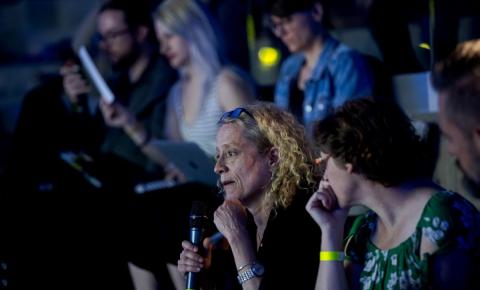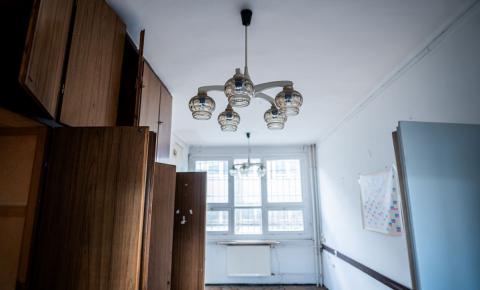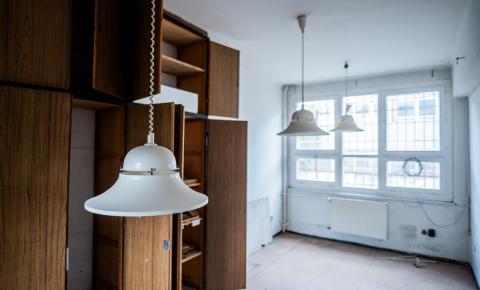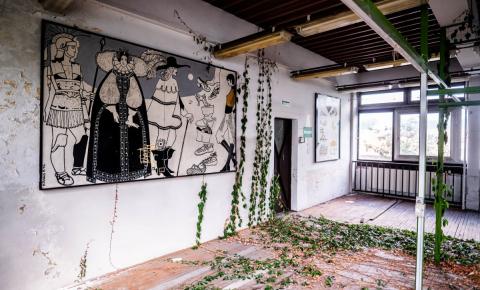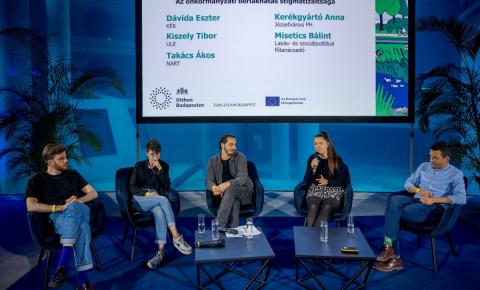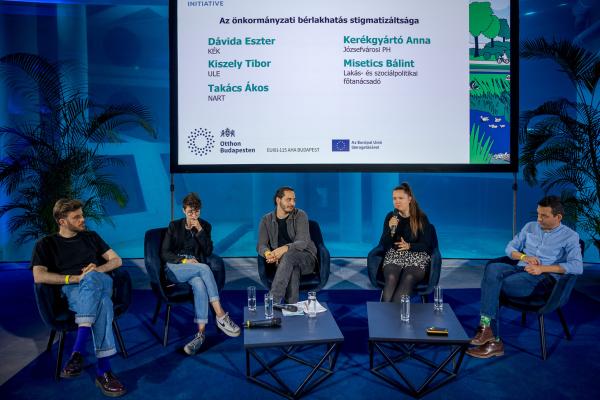
At home in Budapest / The development of a new housing model in the capital city
The event gave the opportunity to introduce the housing projects of the Capital City: Budapest Housing Agency, Budapest Climate Agency and AHA – Affordable Housing for All, moreover, the participants dealt with the current housing challenges focusing on Budapest, in the form of panel discussions. The discussed topics, among others, include: the dynamics of real estate market and housing policy, the social consequences of housing problems, the sustainable development and building energetics.
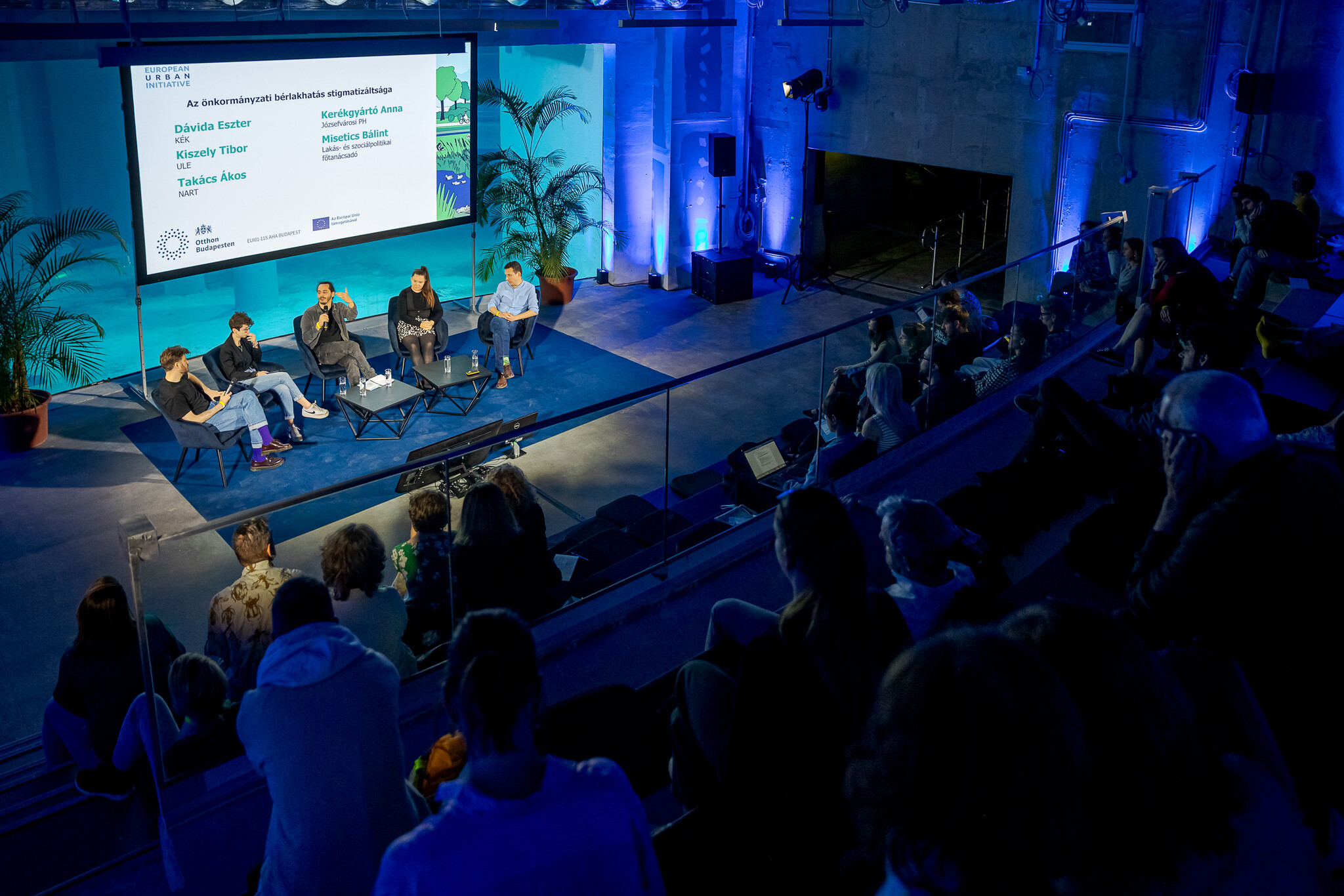
At home in Budapest / The development of a new housing model in the capital city
Budapest Housing Agency
Among the capitals in the European Union, it is Budapest where the rental prices are currently the highest in proportion to wages. The Housing Agency tries to react on this situation, with the aim of developing a new housing model. The Municipality of Budapest has long been working on the launch of a cooperation which is able to enlarge the number of rentable flats in Budapest in a safe and affordable way. An element of this range of instruments is to rent out flats for utilization, then let these flats.
The services are currently offered to private owners who have habitable flats and cannot deal with renting tasks for some reason. The Housing Agency is a public benefit housing manager. It is searching for 20-100 sq m private habitable flats all over in Budapest for offering a cooperation for real estate management and letting the flats. The range of its instruments is expanding constantly: the Agency will soon provide offers for renovation and maintenance as well.
AHA – Affordable Housing for All
Within the framework of an EU programme, AHA – Affordable Housing for All is developing an integrated service model, which includes the scalable conversion of an unused non-residential public building into energy efficient social housing, the increase of social housing supply by new, flexible and affordable solutions, and the implementation of preventive social and energetic interventions that makes residences more affordable based on a unique Early Warning System. The involvement and participation of lessees in the project strengthens the sense of belonging among residents while contributing to the better sustainability of the sector and to the possibility of taking in more vulnerable people.
The key of AHA’s innovation is the development of a complex, modular integrated service model, the aim of which is to reposition social housing as a financially stable, green and aesthetic sector, making it attractive to private investors, thus making it scalable and financially sustainable. In the framework of the project, an unused school is converted into a block of 26 flats in Újpest.
Presentations by experts, panel discussions
On 16 May, the thematic of housing in Budapest will be in focus. The project was presented by Balázs Humayer, Lead Expert of AHA Budapest, he was followed by Bálint Misetics, Senior Adviser for Housing and Social Policy, who talked about the place of AHA project in the urban and housing policy of the Capital City, then Eszter Dávida (Hungarian Contemporary Architecture Centre, KÉK) took the floor who introduced the good practices of the New European Bauhaus program. Ákos Takács (NARTARCHITECTS STUDIO) presented the good building practices of modern community rental housing, while Tibor Kiszely, representing From Streets to Homes Association, analysed the importance of social and lessees’ participation.
The experts’ presentations were followed by a panel discussion, the subject matter of which was the stigmatisation of municipal rental housing, with the participation of Eszter Dávida, Ákos Takács, Tibor Kiszely and Anna Kerékgyártó (Major’s Office of Józsefváros), moderated by Bálint Misetics.
After this, thematic presentations continued:
Eszter Somogyi (Metropolitan Research Institute, MRI) made a presentation about the integrated intervention system aiming the improvement of affordability and security of housing. The next presenter was Ilona Illésné Szécsi (Hungarian Energy Efficiency Institute, MEHI), who talked about counselling and small-scale interventions to reduce energy poverty, the problem and possible handling of energy poverty in Budapest. The session was closed by Petra Madaras-Horogh (Bright Urban Solutions Team, BURST) with her presentation titled ‘Financial Sustainability’.
On the second panel discussion, moderated by Balázs Humayer, the question of what makes municipal rental housing attracted was discussed. Participants: Eszter Somogyi (MRI), Ilona Illésné Szécsi (MEHI), Petra Madaras-Horogh (BURST) and Natália Kiss (Streetlawyer Association).
Community Placemaking in Újpest
After the conference, people interested could participate in a community placemaking event on AHA’s pilot site, in Újpest. In the now abandoned building that once hosted a vocational school for leatherworkers, the students of Budapest University of Technology and Economics, Contemporary Architecture Centre and From Streets to Homes Association organised programmes till evening. In the yard, participants could choose cooking in cauldron, listening to a concert or dancing for traditional folk music. The inner sites of the building got a new meaning: the former gym hall was converted into a bubble football pitch, while other places made room for lampion making, wall painting, library, screening, drawing competition and even a rage room was created with bubble wrap covering.
